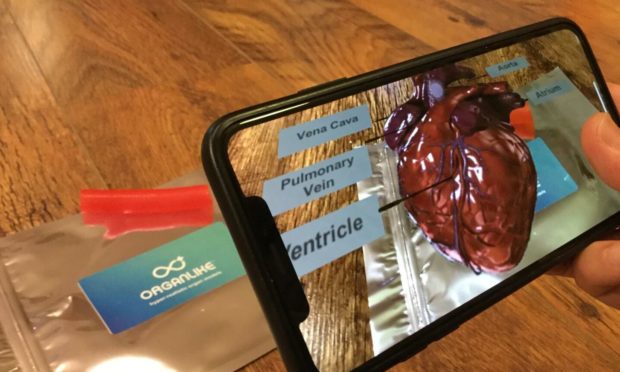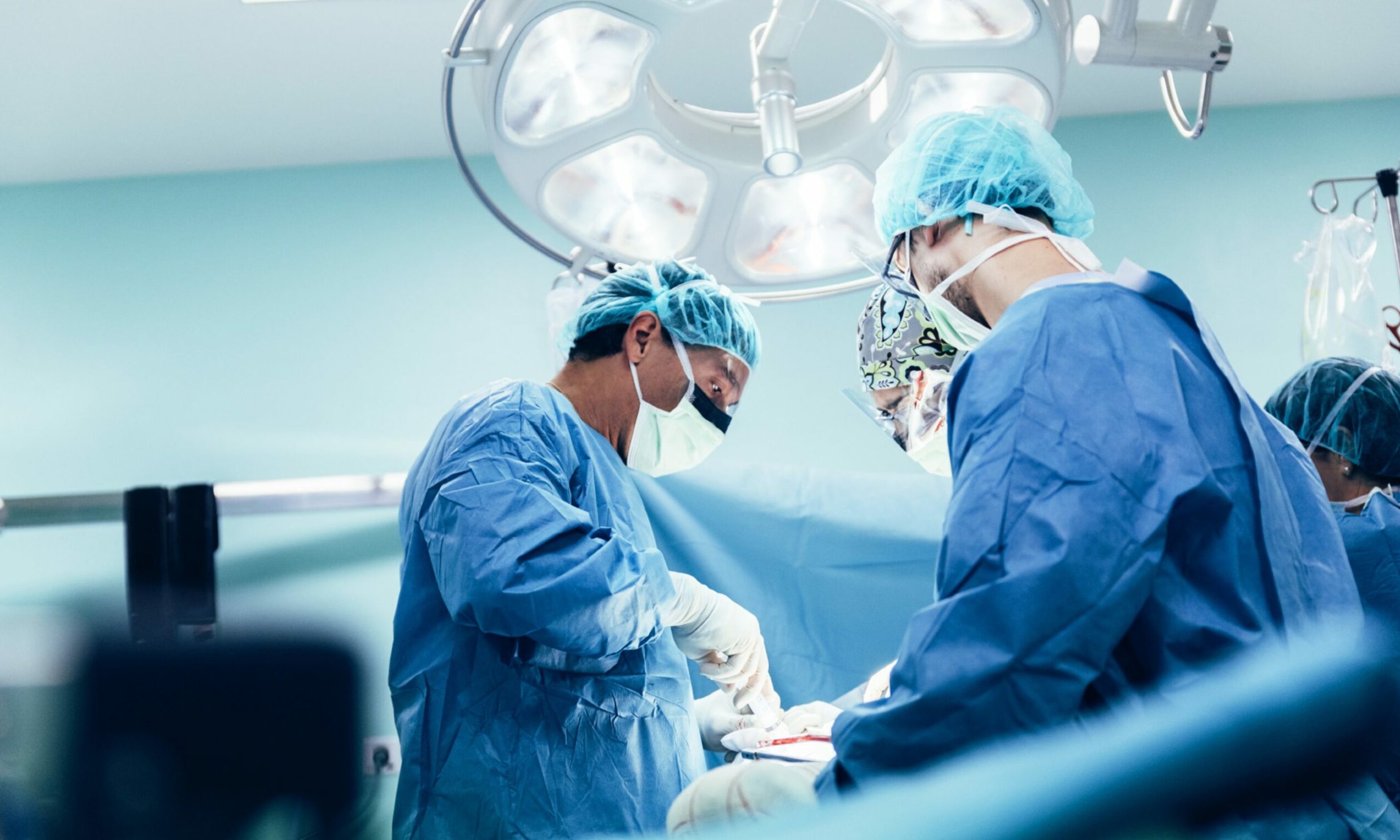Trainee surgeons have begun learning how to perform operations at home with the introduction of new technology partially developed by NHS Highland.
More than 160 kits featuring augmented reality (AR) software and 3D-printed “bio-synthetic” organs have been manufactured so far.
They include replica bowels, blood vessels and skin, all made from a “hyper-realistic” gel that mimics the texture of human tissue.
When these are viewed through the lens of a smartphone camera, the tech shows a computer-generated model of the rest of the body that, in a real situation, would be surrounding it.
It also talks trainees through procedures, offers feedback and can film their work for later review.
‘Particularly valuable’ in current climate
Several organisations have been working with the National Manufacturing Institute Scotland (NMIS) to develop the technology.
They hope it will prove “particularly valuable” in areas where training facilities are scarce or non-existent.
Professor Angus Watson, a colorectal surgeon at Raigmore Hospital, has helped on the project.
“In the airline industry, you wouldn’t let a pilot fly a plane until they’re past their simulator sessions,” he explained.
“And we’ve embraced simulation in surgical training, but want to take it to the next level.
“Young surgeons can learn these skills at home or their own convenience under no pressure.
“Surgery is like sports: Surgeons aren’t born, they’re made – they need that practice to be good.”
How does it work?
Prof Watson, who is an elected member of council of the Royal College of Surgeons of Edinburgh and also a Scottish Government advisor, said: “The tissue is very realistic and made of a substance called aqua gel.
“It doesn’t smell and has the same characteristics as human tissue so surgeons-in-training can get their technique absolutely right.
“And then we’re layering on top of that, so they’re practising their skills in context.
“We’ve been giving them, essentially, a blood vessel that would go into the top of the leg – the femoral artery – and the AR creates all the anatomy of a leg around that.
“It gives them a feeling it’s more realistic, and puts the task in context.”
Potential ‘far beyond’ Scotland
Of the 3D-printed kits developed so far, 110 are ready to be shipped out to trainee surgeons in Kenya, Malawi and Zimbabwe.
Danny McMahon from NMIS said: “While there is no replacement for the real thing, we can help prepare trainees for taking the next step in their training.
“Although coronavirus restrictions are lifting, we expect there to be an increasing demand for a more flexible approach to surgical training going forward.
“The application for this technology extends far beyond Scotland and although it’s still relatively early days for the project we are already excited about its potential.”
And Prof Will Shu, the founder and director of Organlike, said: “Our hope is that our product will form an important part of future training programmes across the world.”


